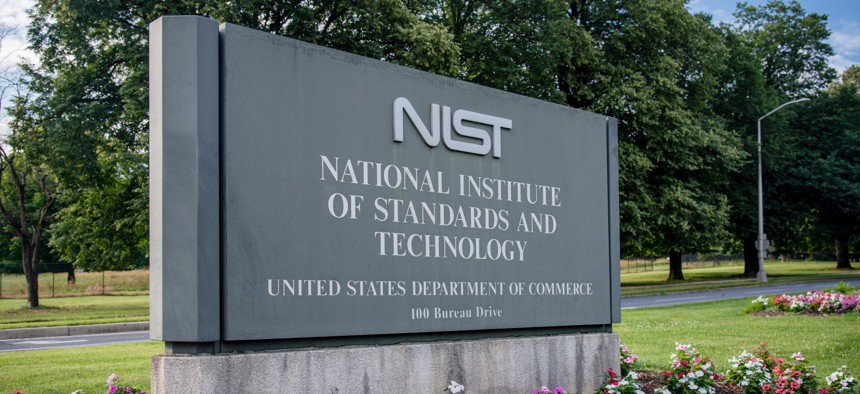
J. Stoughton/NIST
NIST Gets Reauthorization in $350 Billion House Tech Bill
The National Institute of Standards and Technology receives expanded authorities and new funding in a massive legislative passage designed to ramp up U.S. semiconductor production and fund scientific research.
A $350 billion House-passed bill aimed at boosting U.S. semiconductor manufacturing and increasing competitiveness with China includes a full reauthorization of the National Institute of Standards and Technology (NIST), along with new funding, new programs and new authorities.
The America Creating Opportunities for Manufacturing, Pre-Eminence in Technology, and Economic Strength Act of 2022, otherwise known as the America COMPETES Act, is the House's take on a bill the Senate passed in June.
Both bills featured $52 billion in provisions for major incentives to bring semiconductor manufacturing to the U.S., in addition to funding for research, workforce training and supply chain security.
"I look forward to moving quickly to a conference so the House and Senate can bridge the differences between our proposals," Majority Leader Chuck Schumer (D-N.Y.) said on the floor of the Senate on Monday.
The America COMPETES Act includes the NIST for the Future Act of 2021, a bipartisan reauthorization of the agency that includes new spending on biomanufacturing and biometrology research while enhancing cybersecurity and privacy program authorities and digital identity research.
Under the House bill, NIST will receive support to develop "safe and trustworthy" artificial intelligence and data science, including funding to establish testing beds. The legislation also amends Section 504 of the Cybersecurity Enhancement Act of 2014, authorizing NIST's digital identity research and requiring the agency to develop voluntary guidance for digital identity management.
Other provisions expand NIST's research initiatives, including support for a biometrics identification research and testing program to assess biases and better understand the accuracy of biometric technologies. NIST will also be required to develop high-risk federal biometric identification system performance standards and guidelines.
NIST will be required to produce several new guidelines under the House version of the bill, including directives on the security of the full lifecycle for open source software repositories. The agency will also be instructed to establish a new program for defense research enabled by artificial intelligence.







